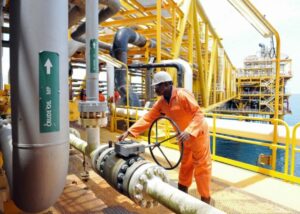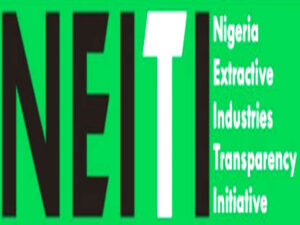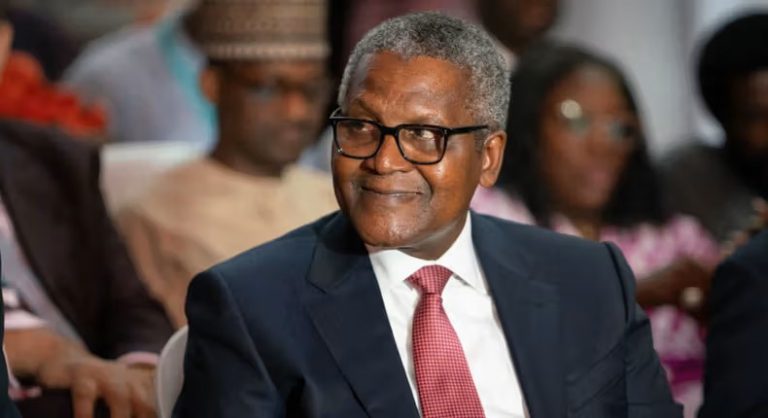•Says Africa must not be allowed to become dumping ground
•Insists he made his money devoid of govt patronage
The President of Dangote Industries Limited (DIL), Aliko Dangote, has defended his many companies against alleged plans to monopolise the sectors they have interests in Nigeria, insisting that Africa must not be allowed to become a dumping ground for foreign products.
For years, the Dangote Group, has faced allegations of trying to dominate Nigeria’s industrial base unfairly and shutting out competition, insinuations that have intensified since his $20 billion giant oil refinery began operation.
Dangote, however, has strongly rejected the claims, insisting that he has never stopped anyone from entering the same line of business and that his investments were not backed by government incentives.
But in a feature article by Bloomberg, it alleged that some of Dangote’s greatest business successes have come in industries where the government bans or limits imports, including sugar and cement.
It recalled that in 2007 then-US Consul General Brian Browne noted criticism about Dangote’s business practices, according to a private cable published by WikiLeaks. “To detractors, he is a predator using connections in a corrupt political economy to tilt the playing field in his favour and sideline potential competition,” Browne wrote.
“It is no ¬coincidence that many products on Nigeria’s import ban lists are items in which Dangote has major interests,” Browne noted.
However, Dangote said that Browne, whom he holds in high regard, was mistaken; as imports of products he sold weren’t banned at the time.
Dangote argued that he has simply taken advantage of opportunities on which others have failed to capitalise. “If you are going to call first movers into business monopolists, then you will never establish a manufacturing base,” he said, adding “Or you’ll never establish anything that you call a country.”
Somehow, Dangote continued to regret the stress he had to undergo to finally get his refinery working, insisting that if he saw the future, he wouldn’t have attempted to start the project.
Further complicating the project, Nigeria provides its citizens with few services, the report said, stating that both rich and poor are left to fend for themselves.
Petrol and diesel generators provide much of the power consumed in the country because of perennial outages, and the skylines of big cities are littered with tanks holding water from privately dug boreholes, it added.
“Right from the beginning of building the refinery, we realised that nobody can provide us with any service,” Dangote said. “You have to provide almost everything by yourself.” But even he isn’t sure it was worth it. “If I knew what I was going to go through, I wouldn’t have tried it,” said the 68-year-old business magnate.
According to the Bloomberg Billionaires Index, Dangote’s net worth has surged by about $1 billion over the past three months, to $28 billion, as the refinery has ramped up. On the strength of his plant, Nigeria has become a net exporter of petroleum products for the first time in three decades.
Dangote, it said, has long faced similar criticism about his companies, which dominate their markets. In a lawsuit, which he recently withdrew, he asked the Nigerian government to ban competition from foreign oil refineries.
Nigeria has among Africa’s biggest oil reserves, but until the new plant opened, it refined little in recent years. The main domestic beneficiaries, the report said, are powerful insiders, such as businesses, generals and politicians, who can grow fabulously wealthy because they control access to natural resources, getting their piece of the action, legally or otherwise.
In Nigeria some of the oil is outright stolen—at least 5,000 barrels a day, even after the country has taken steps to tighten security measures, it said.
Dangote denied wrongdoing, including the use of any preferential foreign exchange access in building the refinery. No one at the company has been charged. “We have made our money clean,” Dangote said. “We are not part of the corruption. We are part of the problem-solving,” he maintained.
Dangote Industries said it’s now in the vanguard of the movement to industrialise Nigeria. “This refinery is going to change the whole face of business in the country,” said Devakumar Edwin, a Dangote Vice President who oversees the refinery. “Instead of exporting the raw material, we are exporting the value product,” he pointed out.
In the 1970s, Dangote, who grew up in the northern Nigerian city of Kano, started his own business with a $3,000 loan from his uncle. He traded cotton, cashew nuts, cocoa and sesame seeds.
Within a few years, he moved into transportation, buying trucks and importing cement and other products, Bloomberg said.
“I was making about N7,000 to N8,000 per day” from trading cement, enabling him to buy his first Mercedes, which cost N5,100.
In September 2024, Dangote Industries, arguing that it could now meet all domestic fuel demand, asked Nigeria’s Federal High Court to halt oil imports. The suit named as defendants the state-owned oil company NNPC Ltd.; its main oversight agency, the Nigerian Midstream and Downstream Petroleum Regulatory Authority; and several oil companies.
In a statement at the time, Farouk Ahmed, the agency’s head, called the move “not good for the nation” due to energy security and “not good for markets in terms of monopoly.”
On July 28 the company withdrew the suit. “We are amicably resolving the issues” and prefer to avoid litigation, Edwin, the Dangote refinery chief, wrote in text messages to Bloomberg, without providing further detail.
The company had said a ban was necessary to protect an emerging Nigerian business, in much the same way that the US under President Donald Trump is pushing for higher tariffs and China treats companies in strategic sectors as national champions.
“These governments are trying to protect their industries. All we are saying is, ‘Hey, guys, do the same,’ ” Edwin said then. “Otherwise, we’ll still be exporting raw material, importing, adding to somebody else’s GDP, creating employment for somebody else.”
Edwin said the company’s relationship with the government is now improving. President Bola Tinubu, who skipped the refinery’s opening, recently visited it for the first time. Dangote is now buying newspaper pages for ads thanking him for his “visionary leadership and far-sightedness,” it added.





